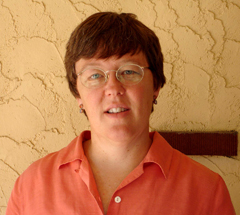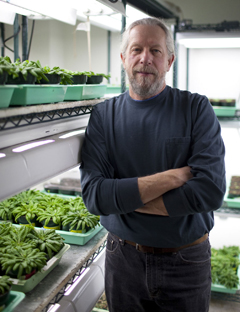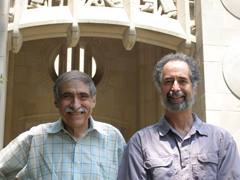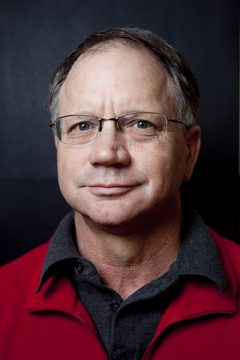Four biology faculty elected to AAAS
Lynda Delph, Roger Hangarter, Roger Innes, and Rudolf Raff are the latest fellows elected to the American Association for the Advancement of Science (AAAS), adding to an already lengthy list of fellows from our department. “We now have 14 active AAAS fellows, which is nearly 25% of our current biology department faculty,” stated Chair Roger Innes. “These honors point to the extremely high quality of our faculty.” The department has a total of 19 AAAS fellows accounting for emeriti or departed faculty. Indiana University President Michael A. McRobbie noted that four of the university’s five new fellows came from the Department of Biology, stating, “When you have that many members from one department it reflects a culture of excellence in that department or school.”
Professor Lynda Delph is an evolutionary ecologist, whose current research focuses around the plant species, Silene latifolia. Using ecological and genetic perspectives, her research aims to understand selective forces in natural populations and the extent to which adaptation is slowed or prevented by the genetic integration of traits. Delph is also the associate chair for teaching and director of undergraduate studies.




 The College of Arts
The College of Arts